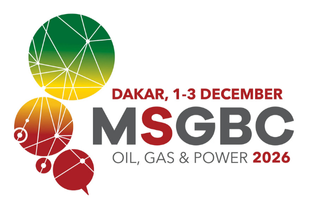Investment Opportunities for EPC Companies in West Africa
)
West Africa’s energy sector features a wide range of investment opportunities for engineering, procurement and construction (EPC) companies. Untapped oil and gas reserves are poised to position the region as a future energy hub for Africa while new licensing rounds continue to bolster the region’s commitment to accelerating exploration and production. Competitive upstream fiscal terms coupled with a focus on sustainability, local content, capacity building frameworks and its proximity to European markets present significant opportunities for international participation and investment.
Upstream Development
Last month, global oil company Woodside Energy commenced oil production from the Sangomar field, offshore Senegal, turning the country into an oil producing nation. Meanwhile, in May, an FPSO vessel with a processing capacity of 500 million standard cubic feet of gas per day arrived at the Greater Tortue Ahmeyim (GTA) LNG field development, straddling the border of Mauritania and Senegal. GTA is expected to come online by Q4, 2024, positioning the MSGBC region as a gas producer and exporter.
The region itself boasts more than 40 trillion cubic feet (tcf) of natural gas and 1 billion barrels of oil awaiting extraction. In Mauritania, 22 blocks are available for leasing, with ten more to be offered in a new licensing round this year. Opportunities in the region’s upstream sector span EPC, drilling and project design services. Low-carbon technologies for companies specialized in environmental services and associated power infrastructure for commercial operations also present lucrative investment opportunities in the industry.
Energy Generation
Mauritania aims to achieve universal energy access by 2030 and is seeking up to $20 billion in investment to develop its gas market. Additionally, Senegal is poised to build a new gas-to-power plant near the city of Saint-Louis featuring an initial capacity of 250 MW expandable to 500 MW.
Investment opportunities for energy generation in West Africa include the development of LNG bunkering infrastructure, gas-to-power systems, gas-to-liquids and LNG export facilities. Ensuring power sector stability in the region is backed by favorable government policies and fiscal frameworks. The Plan for an Emerging Senegal and Mauritania’s Gas Master Plan Road Map showcase the region’s energy resilience and industry expansion ambitions.
Green Hydrogen
Last month, transitional energy group Chariot Energy finalized the feasibility study for a 10 GW green hydrogen project in Mauritania – Project Nour. The country has ambitious plans for large-scale projects aimed at producing 12.5 million tons of green hydrogen annually by 2035. Mauritania also aims to capture up to 1.5% of the global hydrogen market and up to 1% of the global green steel market by 2050.
Green hydrogen production technologies are seeing a wave of interest from international investors. Opportunities for investment in the sector include power generation, manufacturing processes in industries such as steelmaking and cement production, fuel cells for electric vehicles, heavy transport, and green ammonia production for fertilizers, refrigeration and electricity grid stabilization.
Pipelines
Senegal’s planned gas-to-power plant near Saint-Louis will be supplied from the GTA field through a 400km gas pipeline, connecting the field to Saint-Louis, Dakar and Mbour. The pipeline is expected to be completed by the end of 2025. Meanwhile, in September last year, South Africa’s EPCM Holdings was tasked with carrying out technical and commercial assessments of possible routes from the GTA and BirAllah offshore fields to gas-to-power projects in Mauritania.
Following the commencement of topographic surveys in the northern section of the Nigeria-Morocco Gas Pipeline in May this year, the project has reached a crucial milestone in its development. The pipeline will stretch along the West African coast, connecting Nigeria to Morocco and Europe through Benin, Togo, Ghana, Ivory Coast, Sierra Leone, Guinea-Conakry, Guinea-Bissau, The Gambia and Senegal. Upon completion it will connect to the existing Maghreb-Europe Gas Pipeline.
Across the region, EPC companies have opportunities to participate in new pipeline construction, pipeline expansion and upgrades, rehabilitation and maintenance, gas storage facilities, monitoring and control systems and digital solutions.
Renewables
Guinea-Conakry, known as the Water Tower of West Africa, features almost 1,300 watercourses for hydropower generation. Combined with Niger, Senegal and The Gambia, West Africa has the potential to generate up to 6 GW of electricity. In January, the government of Mauritania entered financing agreements for two solar projects worth a total of $289.5 million, covering solar power generation, transitional electricity interconnection and rural electrification.
Renewable energy development offers an array of investment opportunities for EPC companies. Utility scale solar and wind project, energy storage systems, hybrid energy systems, decentralized power projects and grid modernization and infrastructure present lucrative opportunities for companies aiming to enter West Africa’s renewable energy market.
Explore opportunities, foster partnerships and stay at the forefront of the MSGBC region’s oil, gas and power sector. Visit www.msgbcoilgasandpower.com to secure your participation at the MSGBC Oil, Gas & Power conference. To sponsor or participate as a delegate, please contact sales@energycapitalpower.com.

